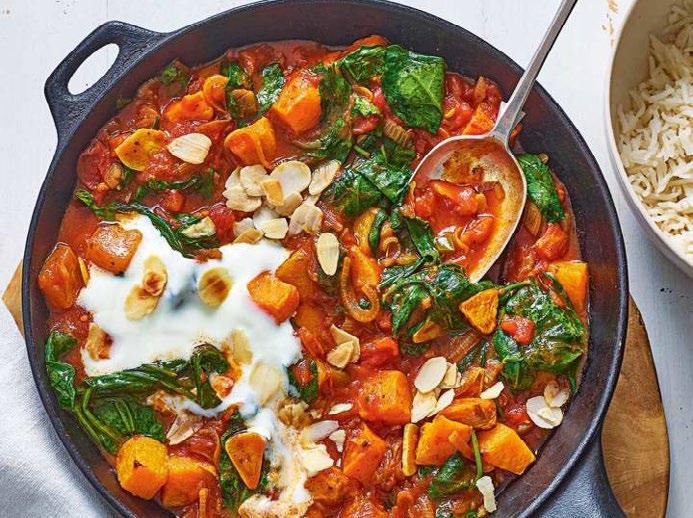














Happy New Year from all of us here at Families! We wish you the very best for the months ahead.
It’s hard for everyone to keep New Year’s resolutions – especially children. Download our free colour-in Reward Chart which may help to keep your children engaged.
Whilst everyone feels like hibernating in winter, getting outside is good for us so, to motivate you, we’ve got some ideas for seasonal family activities as well as some projects which will help welcome more wildlife to your garden. And, once you’re back indoors? We have some great ideas for making family nights in special.
Finally, in this issue, we have Britannica Magazine subscriptions and other goodies to giveaway! Apply inside the magazine. By doing so, you’ll also ensure you receive our digital magazine with lots more content and goodies on offer.
Congratulations





 By Jessica Joan
By Jessica Joan

Plan some great reading for your child with our children’s book suggestions, all just published or due to be published this year.
DJ Baby Funky novelty board book featuring spinning record turntables! Ages 1+.

Ten Little Bugs Part traditional counting rhyme, part fun-filled story - perfect for sharing. Ages 3-5.

Grandad’s Pride
Beautiful follow-up to Grandad’s Camper, filled with heart and purpose. Ages 3-6.


Charming picture book about the unusually literary fish. Ages 4-8.
Weird but true! 2023
National Geographic annual loaded with brain bending facts and photos. Ages 7-10.


Special World Book Day story (£1) in the actionpacked series. Ages 8+.
Special World Book Day story (£1) - a funny, joyful romp. Ages 6+.

Valentine Crow & Mr Death

Distinctive, warm and funny. From highlyacclaimed Jenni Spangler. Ages 9+.
Gilbert the Goblin’s new adventure – finding the legendary yeti. Ages 4-8.



 By Sarah Ockwell-Smith
By Sarah Ockwell-Smith

The ‘terrible twos’ aren’t called that for nothing! This stage of a child’s life is all about big feelings. Scientifically, it relates to the undeveloped prefrontal brain cortex meaning a child is unable to regulate their own emotions.
What is a tantrum?
Tantrums describe the state of an individual who is out of control, full of big emotions and stress hormones and unable to calm themselves down. Tantrums can happen right into adulthood but adults learn to self-soothe.
Toddlers don’t possess these skills
yet. They are not being naughty or manipulative, they are simply being toddlers. Tantrums are a normal and exceedingly common feature of child development. Research has found that nearly nine in ten children between 18 months and 2 years regularly have tantrums, with most having at least one a day, lasting on average between thirty and sixty seconds (although it is not uncommon for them to occur far more frequently and last for much longer).
Contrary to popular belief, ignoring, shaming or punishing tantrums can make a toddler’s behaviour much worse. These approaches ignore a child’s difficult underlying feelings and don’t resolve the cause or help the toddler regulate their behaviour. Experts have discovered just how much infant brains are affected by the level of parental care they receive. With nurturing attention, the part of their brains responsible for regulating emotion become better connected as they grow. READ

Perform’s confidence-building classes are sure to blow away the winter cobwebs and help children feel energised and inspired.
This term sees children ages 4 to 7 trapezing and somersaulting into a Circus Adventure whilst those ages 7 to 12 work on a fun and funky adaptation of Robin Hood, in Outlaw. Imaginations will soar as children work towards a magical performance for family and friends.
Perform is not like other children’s drama schools. Its classes have a special emphasis on child development and use a mix of drama, dance and singing to bring out every child’s potential.
Run by experienced actorteachers, Perform classes focus on developing the 4 Cs: Confidence, Communication, Coordination and Concentration.
With all abilities welcome, children can join at any point in the term and will take part in the performance. The only requirement is to get ready to have the best fun of the week!
Children are welcome to try a FREE class. With local venues in Ashford, Bexley, Faversham, Hempstead, Kings Hill, Langton Green, Maidstone, Orpington, Riverhead, Sevenoaks, Tonbridge and Tunbridge Wells there’s sure to be a class near you.

Find the right class and book HERE, EMAIL or call 020 7255 9120 to book a FREE trial class in one of the following venues.
Ashford: St Mary’s Community Centre, TN24 9LH
Bexley: St John Fisher Catholic Church Hall, DA5 1AP
Faversham: West Faversham Community Centre, ME13 7RH
Hempstead: Hempstead Valley Community Centre, ME7 3PD
Kings Hill: Kings Hill Community Hall, ME19 4LG
Langton Green: Langton Green Village Hall, TN3 0JJ
Maidstone: St Pauls Church, ME14 2AN
Riverhead: Riverhead Village Hall, TN13 2EL
Sevenoaks: The Parish Church of St Luke, TN13 1XT
Tonbridge: St John’s Church Centre, TN11 9HT
Tunbridge Wells: Christ Church Centre, TN1 1UT




Brilliant members of one-to-one staff are ‘game changers’ when it comes to young people doing well at school.
For a young person with complex medical needs, attending school can be challenging to say the least.

The minefield of tasks required to attend lessons can often mean that students become frustrated. However, with the right support, it does not have to be this way and at Valence School, they believe that a well-planned programme of support and a dedicated one-toone member of staff can make the difference.
Valence School employs a range of staff that assist in a variety of ways. These include: support with therapy programmes designed to minimise pain, communication support for students with hearing and visual impairments, assisting health procedures as well as classroom support to record work and help with personal care.












Here’s









Cooking multiple meals at one time and then storing for later use.
Food is cooked in a ‘batch’, then stored in airtight containers. Meals are stored in portions for ease.
Batch cooking often involves doubling, tripling or quadrupling ingredients.
Big pans - you’re cooking bulk so ensure you have enough big pans to cope.
Large mixing bowls to bring all those ingredients together.
Storage containers and resealable freezer bags. Choose the right size for your family.
Labels. Keep track of what you’ve got and when you cooked it.
Saves money - buying food in bulk is cheaper. Saves time – you don’t need to cook every evening.
You are cooking when you want to and not when you have to.
It’s healthier as you always have a tasty nutritious meal on hand.
Set aside a few hours so you’re not rushed.
Prepare ingredients - weighing, measuring and chopping first will make the job easier.
Clean as you go and, if making several recipes at once, tidy up as you go too.
Cool before you freeze; food will keep better and save fridge energy.
This 2 minute video from The Batch Lady shows exactly what you’ll need to start batch cooking freezer meals.
This short video from The Batch Lady offers a great rundown on how to plan weekly meals for your family.













































Parents wanting to locate a local children’s physiotherapist can now use an online directory launched by Association of Paediatric Chartered Physiotherapists.



The majority of children’s physiotherapists work in the NHS. Your GP can advise about local services and make a referral, if appropriate. However, some parents choose to seek advice and treatment from an independent or private physiotherapist either instead of, or to supplement, NHS care. Many children need support from a physiotherapist at some time during their childhood. This may be sought for advice and treatment relating to posture and movement or for acute injuries.
Qualified children’s physiotherapists are regulated, have additional expertise in child development and childhood conditions and the right skill base and knowledge to deliver the best care for babies and children.

Phone alerts and notifications are constantly distracting and family members often have to compete. Being fully present with the activity or conversation we’re having with our children - without distraction - demonstrates that we value ‘real’ time together and are fully available.
Research shows that too much screen time can lead to mental health issues in children, whilst lost time interacting with family/ peers can impact their social development. Monitor screen time, ensure content is ageappropriate, communicate about inappropriate images and model healthy device habits.

Children absorb emotions like sponges and overhearing the news or emotionally-charged adult conversation can fuel their anxiety. If your child is worrying about the future, use mindfulness to bring them back to the present moment—’right here, right now, with you, all is well.’ Tell them that you love them no matter what.


Nature-deficit disorder (NDD) can contribute to higher rates of physical and emotional illnesses. But the good news is, it can easily be reversed. Spending time in nature is easier than we think: village greens, parks, commons and nature reserves abound in the UK and they provide the perfect setting for free family activities.



Claire at Bridgemaker Mindfulness shares her top tips.

Reading is relaxing, distracting and a good alternative to screen time. A 2009 University of Sussex study found that reading can reduce stress by up to sixty eight percent. Just six minutes of relaxing into a good book can lower blood pressure and muscle tension.
Children are more likely to express their feelings when they sense we are fully available. Sitting somewhere that they have to pass by when they return from being elsewhere and gently inviting them to join us can be a good start. Listen intently without moving into ‘fix-it mode.’

Creating a comforting, wind down routine can help (reading a book together, listening to soothing music). Try placing hands on the belly, breathing easily and focusing on the breath, following the gentle movement of the belly that rises and falls. For the busy mind, try counting the breath to ten (in – 1, out – 2 etc) over and over.
Mindfulness apps/recorded meditations can help adults and children to relax and unwind but nothing compares with attending a course with a qualified mindfulness teacher which teaches key mindfulness skills. However, if, despite your best intentions and care, your child’s behaviour or anxiety level becomes worrying, do seek medical advice from a GP.




































Let them experience ‘age-appropriate risk’ under adult supervision AT ALL TIMES. Research shows that it’s essential for a balanced childhood.

The use of a power tool is an important life skill that is good to learn early.

Challenge your child to live blindfolded – it’s fun and builds empathy.


It’s best children learn about fire safely with you.
Children can’t resist throwing - and it can be managed safely.


A life skill that develops with experience, whittling is a fun introduction.

Another irresistible urge for children - fun and beneficial when done safely.
Blow

A classic science experiment which is spectacular - but messy!
This ancient British game can be safely played if done correctly.
Use a bow and arrow
Though potentially hazardous, it’s great for developing situational awareness.
